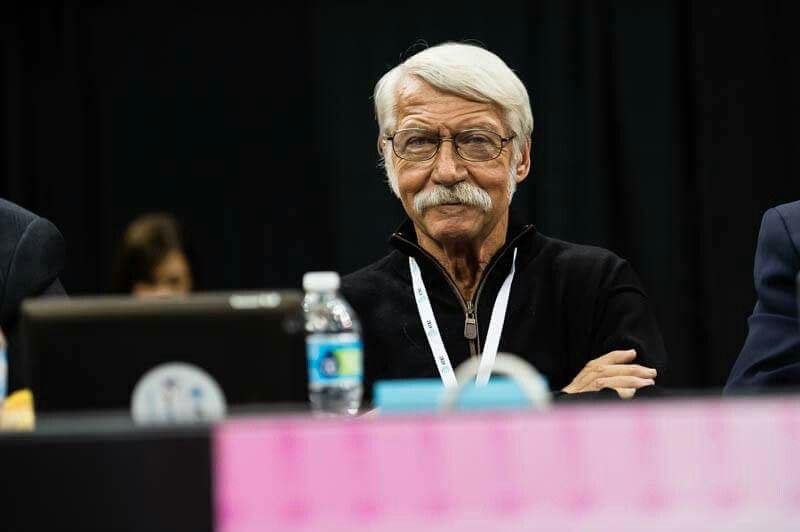Bela Karolyi Death, Obituary – Romanian centralized gymnastics training system and coach to European, World and Olympic gymnasts, Béla Károlyi, born in Kolozsvár (now Cluj-Napoca, Romania) on September 13, 1942, is a legendary figure in the world of gymnastics, known both for his significant contributions to the sport and his controversial coaching methods.
As a young athlete in Romania, Károlyi excelled in boxing and hammer throwing before eventually turning his attention to gymnastics. His passion for coaching led him to help develop Romania’s centralized training system in the late 1960s and 1970s, which would become one of the most influential models in the sport’s history.
Born September 13, 1942 (age 82)
Kolozsvár, Hungary (now Cluj-Napoca, Romania)
Citizenship Hungary, Romania, United States
Alma mater Romania College of Physical Education
Occupation Gymnastics coach
Years active c. 1956–1997
Employer(s) Romanian Gymnastics Federation, U.S. Gymnastics Federation
Known for Romanian centralized gymnastics training system and coach to European, World and Olympic gymnasts
Spouse Márta Erőss (m. 1963)
Children Andrea Wise
Károlyi’s coaching career reached international fame when he began working with Nadia Comăneci, the first gymnast in Olympic history to score a perfect 10. Under Károlyi’s guidance, Comăneci became the star of the 1976 Summer Olympics in Montreal, where she won three gold medals and changed the landscape of gymnastics forever. This success catapulted Károlyi into the spotlight, and he continued to coach other notable athletes like Ecaterina Szabo and Mary Lou Retton, guiding them to victory in European, World, and Olympic competitions.
In 1981, Károlyi and his wife Márta defected to the United States, seeking asylum due to their opposition to the oppressive regime of Nicolae Ceaușescu. In America, they transformed the U.S. gymnastics program, bringing unprecedented success, including the 1996 Olympic gold medal win by the U.S. women’s gymnastics team. However, their coaching methods, which were often harsh and demanding, faced increasing criticism. Many former athletes have accused the Károlyis of creating an environment of abuse, a controversy that became even more pointed after the Larry Nassar scandal.
Despite the criticisms, Károlyi’s impact on gymnastics is undeniable. He has coached numerous Olympic and world champions, and his coaching legacy is enshrined in the International Gymnastics Hall of Fame. Yet, his career remains a complex legacy, shaped by both his profound influence on the sport and the darker aspects of his coaching approach.
